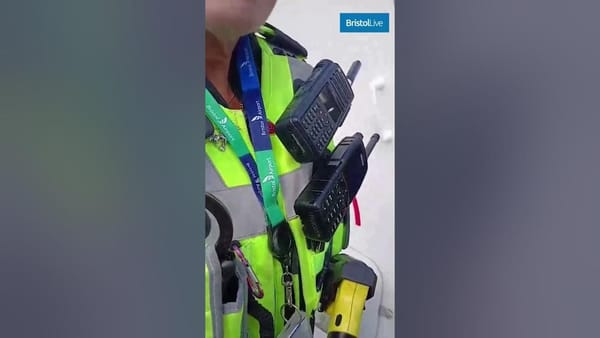Judge "extremely troubled" as government admits they've lost track of wrongfully deported man

Federal Judge Demands Answers After Administration Loses Track of Man They Wrongfully Deported
The tension in the Maryland courtroom was palpable as U.S. District Judge Paula Xinis repeatedly asked one seemingly simple question: "Where is he and under whose authority?"
The "he" in question is Kilmar Abrego García, a man with a valid U.S. work permit since 2019 who was wrongfully deported to El Salvador last month. What followed was an extraordinary and heated exchange that left onlookers stunned.

"I'm not asking for state secrets," Judge Xinis said, her frustration evident in her tone. "All I know is that he's not here. The government was prohibited from sending him to El Salvador, and now I'm asking a very simple question: where is he?"
The government's response? They have "no evidence that he is not still in El Salvador."
Judge Xinis called this admission "extremely troubling."
This extraordinary case began on March 12 when Immigration and Customs Enforcement (ICE) officers stopped and detained Abrego García, questioning him about alleged gang affiliations. Despite having a valid work permit, he was placed on one of three high-profile deportation flights to El Salvador on March 15.

His wife, U.S. citizen Jennifer Vásquez Sura, hasn't been able to speak with him since he was deported and imprisoned in El Salvador. She has been protesting outside the courthouse, urging supporters to keep fighting for her husband "and all the Kilmars out there whose stories are still waiting to be heard."
The Supreme Court on Thursday upheld Judge Xinis's order to "facilitate" Abrego García's return to the U.S. But at Friday's hearing, the administration's attorney couldn't provide basic information about what steps, if any, had been taken to locate Abrego García or bring him back.
"Have they done anything?" Judge Xinis asked.
The government attorney, Drew Ensign, admitted he did not have "personal knowledge" of what had been done.
"So that means they've done nothing," the judge concluded.

The administration has argued in court filings that it is "unreasonable and impracticable" to say what its next steps are before they are "properly agreed upon and vetted."
They further claimed: "Foreign affairs cannot operate on judicial timelines, in part because it involves sensitive country-specific considerations wholly inappropriate for judicial review."
Abrego García's lawyers countered in their own filing: "The government continues to delay, obfuscate, and flout court orders, while a man's life and safety is at risk."

The case has highlighted growing tensions between the administration and federal courts. Judge Xinis ordered the government to provide daily updates on what they're doing to bring Abrego García home, making it clear she won't tolerate further delays.
"We're not going to slow-walk this," she said firmly. "We're not relitigating what the supreme court has already put to bed."
The fate of Kilmar Abrego García remains unknown as the administration has until Tuesday to provide the information Judge Xinis demanded. Meanwhile, his family continues their desperate fight to bring him home.
His wife's heartbreaking plea outside the courthouse has become a rallying cry for supporters: "Bring Kilmar home.




